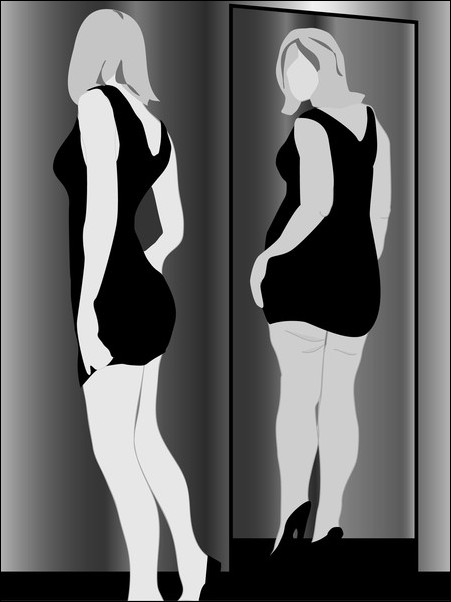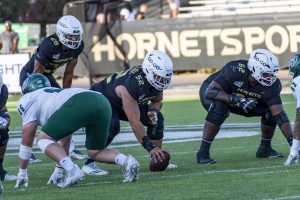Double vision
March 1, 2006
Imagine a life where you can wake up in the morning, look in the mirror and absolutely love what you see. Wouldn’t it be great to be able to airbrush the image in the mirror, take away a couple inches here, add a couple inches there and then computer enhance yourself to replicate the image of a perfect woman?
Although the thought is rather appealing, the reality couldn’t be more opposite. In a society where women are held in comparison to unrealistic images in the mass media, it may be difficult for the average woman to look in the mirror and fully embrace the image staring back at her.
Women are so taken by how they are supposed to look that they lose perspective on what’s really important, according to Laurie Bisset-Grady, director of health education at the Student Health Center.
“Women tend to base their self-worth on their appearance,” Bisset-Grady said. “The hardest thing for women to do is love themselves the way they are and not look to society for approval.”Grady suggested the best way to self-acceptance is balancing knowledge, exercise, eating well and recognizing your limitations when it comes to food.
Finding a balance of eating right, exercise and slowly accepting her body led Amy Jo McKenzie to a significant weight loss and a new confidence she could never imagine.
The junior interior design major spent most of her life hiding under baggy clothes, attempting to find confidence through family and friends and avoiding her image in the mirror.
McKenzie is tall and athletic, with big, blue eyes, long lashes, pearly white teeth, full lips, high set cheekbones and long, golden hair.
“I’ve struggled my whole life with my body image, always hiding, always afraid of what people thought of my weight,” McKenzie said.
It wasn’t until a knee injury last spring that McKenzie realized she needed to start taking better care of her body, not only for physical reasons, but for emotional reasons as well.
Her knee injury led to surgery and a few weeks in bed. McKenzie’s mother took control of her daughter’s food intake and would only prepare her healthy meals consisting of foods like chicken and vegetables instead of the pizza and fries.
Although she was initially opposed to the idea, McKenzie eventually began to enjoy the change in her diet, continued eating healthy, joined Weight Watchers and began to shed the pounds.Seven months after her surgery, McKenzie has lost nearly 50 pounds.
“I am so much more confident in myself, way more comfortable in my own skin, and I don’t feel invisible,” McKenzie said.
McKenzie admitted people treat her differently to the point that it’s somewhat disturbing.”My life is so different now, I get more attention, more respect, but it’s sad that I had to transform my body to get it,” McKenzie said.
Katherine Parker, a nutritionist in the Eating and Healthy Weight Program, works on campus one day a week and is consistently booked with appointments.
Parker deals primarily with female students who struggle with body image.
“A patient will come in and want to lose 10 pounds and I have to ask what exactly it is that’s driving them to lose weight,” Parker said.
Parker said 80 to 90 percent of her patients have eating disorders and the most essential part of the program is trying to get the patients to change their thought process, accept their bodies and try to make them understand food through a scientific and emotional perspective.
Crystal Jones sought help from the body image program offered at the Student Health Center. The senior photography major looked at the program’s Web site after realizing she had serious issues with her body image and wanted to find peace and confidence.
Jones’ appearance fits what is commonly desired in society: blonde hair, light blue eyes, long legs and a small waist. No one would ever think she would struggle to accept her image.
“I use to wake up everyday, look in the mirror and pick apart my body, constantly telling myself to exercise more, eat less,” Jones said.
After reading self-help books and with advice from the body image program, Jones realized that accepting her body was the key factor in being happy and finding confidence.
“I decided that I didn’t want to spend my life not eating, not having fun and just always obsessing about my weight,” Jones said.
She no longer focuses on her flaws but instead replaces her self-doubt with positive self-talk.
“I had to ask myself, how can I expect other people to love me if I don’t love me,” Jones said.
Jessica Rojo can be reached at [email protected]
























































































































